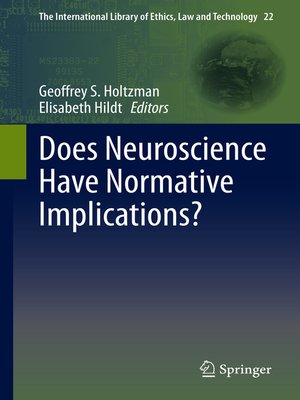Does Neuroscience Have Normative Implications?
ebook ∣ The International Library of Ethics, Law and Technology
By Geoffrey S. Holtzman

Sign up to save your library
With an OverDrive account, you can save your favorite libraries for at-a-glance information about availability. Find out more about OverDrive accounts.
Find this title in Libby, the library reading app by OverDrive.



Search for a digital library with this title
Title found at these libraries:
| Library Name | Distance |
|---|---|
| Loading... |
This book brings together a number of essays that are optimistic about the ways certain neuroscientific insights might advance philosophical ethics, and other essays that are more circumspect about the relevance of neuroscience to philosophical ethics. As a whole, the essays form a self-reflective body of work that simultaneously seeks to derive normative ethical implications from neuroscience, and to question whether and how that may be possible at all. In doing so, the collection brings together psychology, neuroscience, philosophy of mind, ethics, and philosophy of science. Neuroscience seeks to understand the biological systems that guide human behavior and cognition. Normative ethics, on the other hand, seeks to understand the system of abstract moral principles dictating how people ought to behave. By studying how the human brain makes moral judgments, can philosophers learn anything about the nature of morality itself? A growing number of researchers believe that neurosciencecan, indeed, provide insights into the questions of philosophical ethics. However, even these advocates acknowledge that the path from neuroscientific is to normative ethical ought can be quite fraught.







